Jamaican Leaders Write Letter Seeking Reparations From the Crown Ahead of William and Kate's Visit
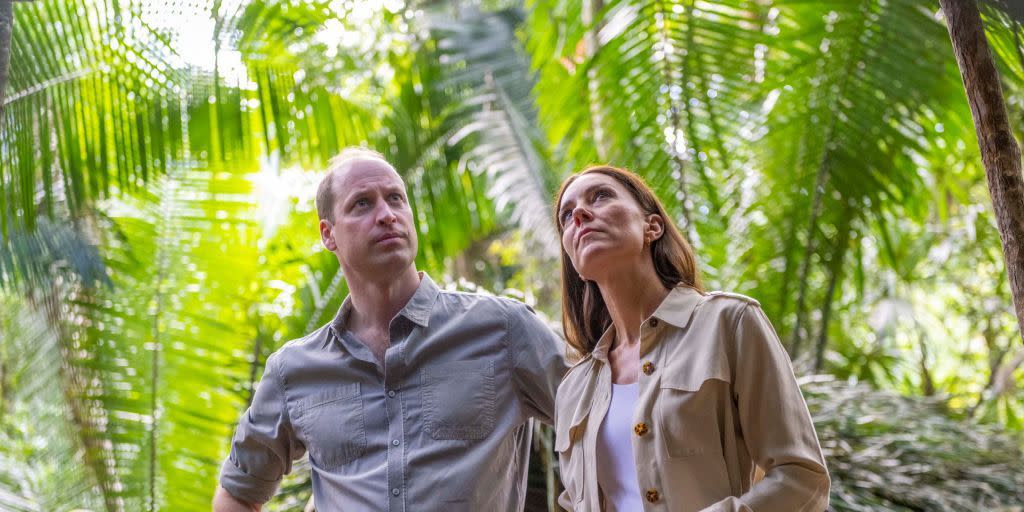
Jamaican leaders are speaking out ahead of the upcoming royal tour visit from the Duke and Duchess of Cambridge. In a letter published this weekend, 100 prominent Jamaican politicians, professors, and more urged Prince William and Kate Middleton to apologize for "British crimes against humanity" and for the British crown to pay reparations.
Prince William and Kate have wrapped up the first leg of their Caribbean royal tour in Belize and are set to arrive in Jamaica, a former British colony, today. Jamaica's past with Britain is rife with violence; starting in 1655, the plantation labor system set up by the British in Jamaica relied on the labor of enslaved Africans through the transatlantic slave trade. An estimated 600,000 enslaved Africans were forcibly transported to Jamaica.
Jamaica gained independence 60 years ago but remains a British Commonwealth realm—meaning the Queen remains Jamaica's head of state—but calls for Jamaica to become a republic especially intensified after Barbados forged a new republic last year.
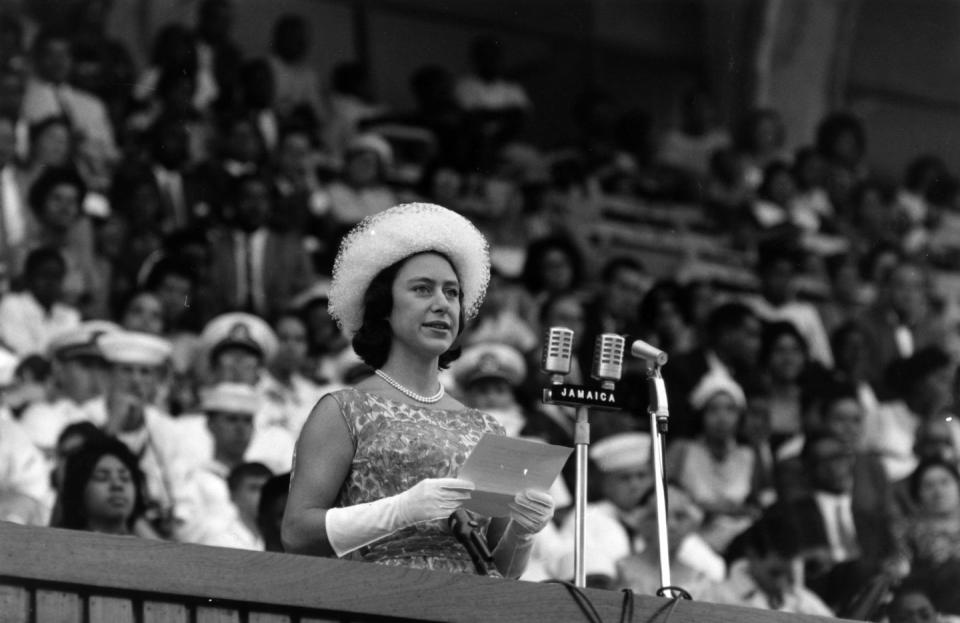
"We see no reason to celebrate 70 years of the ascension of your grandmother to the British throne because her leadership, and that of her predecessors, have perpetuated the greatest human rights tragedy in the history of humankind," the Advocates Network group wrote in their letter, published online Sunday.
"During her 70 years on the throne," they continued, "your grandmother has done nothing to redress and atone for the suffering of our ancestors that took place during her reign and/or during the entire period of British trafficking of Africans, enslavement, indentureship and colonialization."
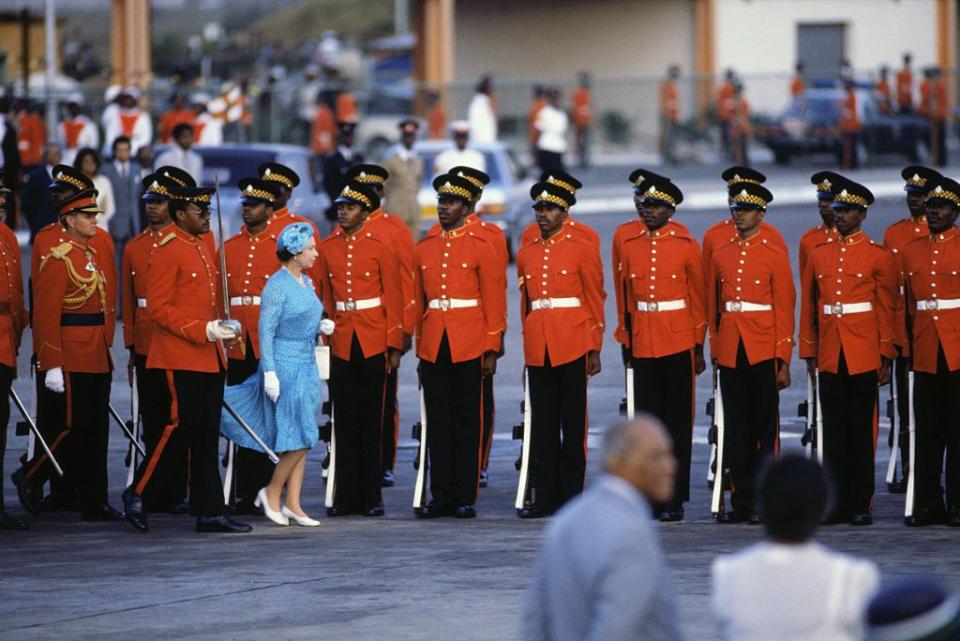
Last summer, the Jamaican government submitted a petition demanding reparations from the Queen and the UK government. State officials said they're asking for $10.6 billion in reparations.
"We are hoping for reparatory justice in all forms that one would expect if they are to really ensure that we get justice from injustices to repair the damages that our ancestors experienced," Jamaican politician Olivia Grange told Reuters. "Our African ancestors were forcibly removed from their home and suffered unparalleled atrocities in Africa to carry out forced labor to the benefit of the British Empire. Redress is well overdue."
Demands for reparations are not unique to Jamaica; in the U.S., for example, Black Americans have argued for reparations since the end of the Civil War.
"The essence of the reparations movement is that if you cause harm to a group of people, you have a duty to repair that harm," historian Verene Shepherd, the director of the Centre for Reparation Research at the University of the West Indies, told NBC News. "Those who benefited from the labor of the ancestors of African people are still benefiting from the wealth. There is an intergenerational generation of wealth on one side, and an intergenerational transmission of poverty on the other."
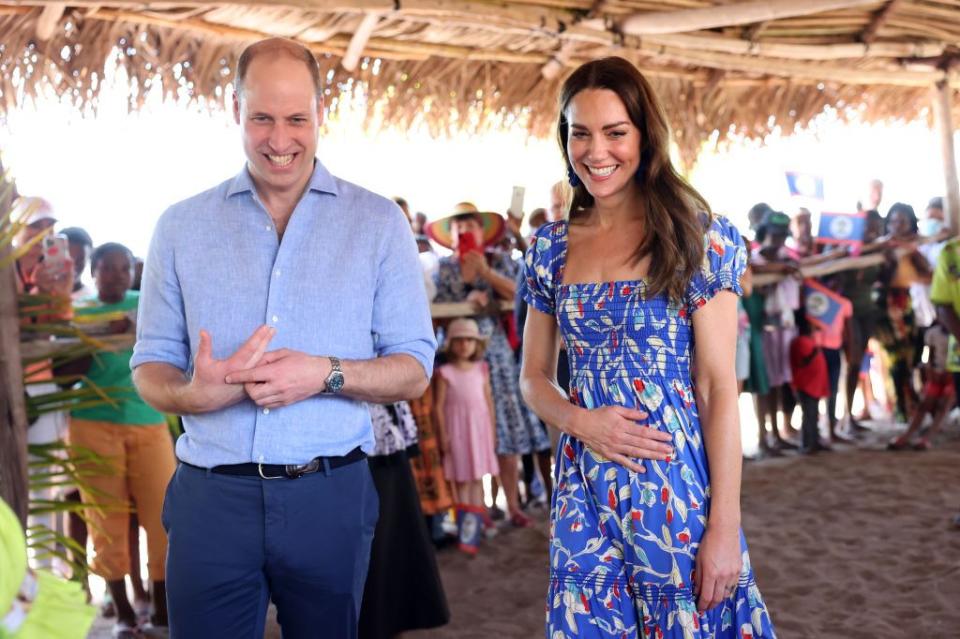
The royal family has undeniably benefited from the wealth of the British Empire, which was made possible by the labor of enslaved Africans. Indeed, the letter specifically referenced how Prince William and Kate are "direct beneficiaries of the wealth accumulated by the royal family over centuries," and will perhaps one day be on the British throne. Therefore, the Cambridges have "the unique opportunity to redefine the relationship between the British Monarchy and the people of Jamaica," a process which, per the letter writers, starts with "an apology and recognition of the need for atonement and reparations."
During their visit to Jamaica, Prince William and Kate are set to celebrate the legacy of Jamaican musician Bob Marley. The letter specifically called this out, stating, "As a Rastafarian, Bob Marley embodied advocacy and is recognized globally for the principles of human rights, equality, reparations and repatriation."
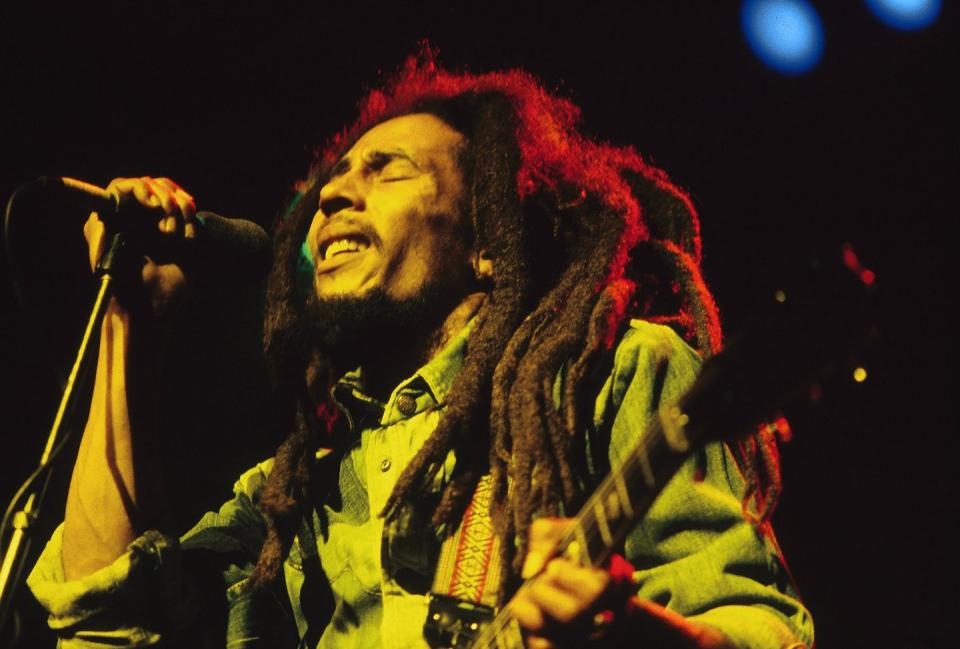
Whether or not the royals will comment on the politics surrounding their Platinum Jubilee tour remains to be seen.
"We are hopeful that in spite of what has happened, the royals can break with the past and create new opportunities for reconciliation and begin our process of reparatory justice," Professor Rosalea Hamilton, who signed the letter, told the Guardian.
You Might Also Like

